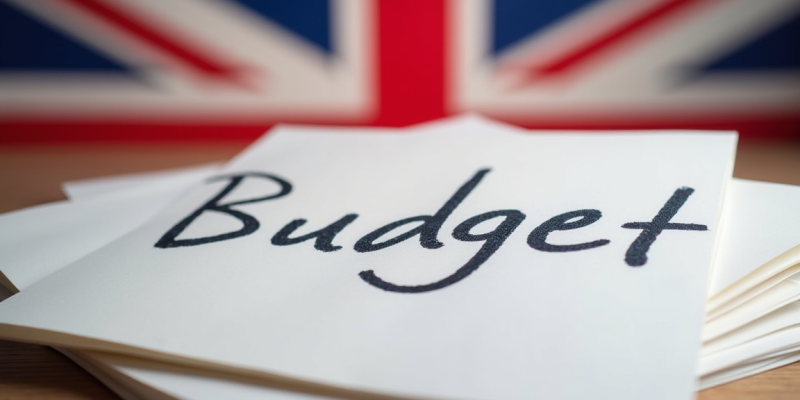
Britain’s tax landscape is set for a major shake-up as Chancellor Rachel Reeves prepares her first Budget on 26 November, with measures expected to affect different segments of the society alike.
Facing subdued economic forecasts and limited fiscal space, Reeves is preparing to announce new levies as part of an effort to stabilise public finances without lifting headline income tax rates.
Among the proposals is a plan to allow English mayors to introduce a nightly tax on hotel stays and Airbnb-style accommodation, The Guardian reported.
The measure, already under discussion in Scotland and Wales, would mark a substantial shift in how tourism is taxed in England and could have wide-ranging implications for the hospitality sector.
At the same time, the chancellor is preparing to end the exemption milk-based drinks currently enjoy under the sugar tax — a move that would extend the levy to popular milkshakes and flavoured dairy beverages.
Additional changes to tax rules for limited liability partnerships (LLPs) and salary sacrifice schemes are also expected, potentially raising costs for higher-earning professionals and closing long-standing gaps in the system.
Mayors poised to gain powers to impose tourism levy
According to reporting by The Guardian and The Times, Reeves intends to use the Budget to grant mayors the authority to collect an overnight tourist tax, similar to those levied across European cities.
The revenue would be earmarked for transport improvements and local public services, with some estimates suggesting the levy could generate hundreds of millions of pounds.
However, the proposal has triggered alarm across the hospitality industry.
UKHospitality, the sector’s main trade body, warned that a 5% levy — the rate due to be implemented in Edinburgh next summer — would effectively push the combined tax burden on a hotel stay to 27% once VAT is included.
The body estimates that British households could face an additional £518 million in costs if a similar levy is adopted in England.
Kate Nicholls, chair of UKHospitality, argued that while the government is concerned about the cost-of-living crisis, the tourism levy risked functioning as a “higher VAT rate for holidaymakers” and could dampen domestic travel demand.
Government sources defend the proposal by noting that England is an outlier among advanced economies in not charging tourists an overnight fee.
The measure is expected to be incorporated into amendments to the English devolution and community empowerment bill currently progressing through Parliament.
Milkshake tax expected as Treasury moves to broaden sugar levy
Another proposal likely to appear in next week’s Budget is the long-debated extension of the Soft Drinks Industry Levy to include milk-based beverages that exceed current sugar thresholds.
Under existing rules, drinks containing five grams or more of sugar per 100ml are taxed at a minimum of 18p per litre, but dairy drinks have remained exempt.
The exemption now appears set to be removed, potentially raising between £50 million and £100 million annually for the Treasury when the change takes effect in April 2027.
A Treasury source declined to comment on the reports, but the move was swiftly criticised by Conservative Shadow Chancellor Mel Stride, who accused Labour of “moving the goalposts” for companies that had already reduced sugar content under previous guidance.
“It will see businesses that played by the rules punished,” he said.
The government is likely to argue that extending the levy is consistent with public health goals and with closing loopholes that create uneven treatment across similar product categories.
High-earning professionals face changes to LLP tax rules
Reeves is also expected to target limited liability partnerships — a structure commonly used by lawyers, accountants and some medical professionals — by introducing a new charge similar to employers’ National Insurance, though at a lower rate than the standard 15%.
Supporters of such a reform argue that the current system advantages LLP members over traditional employees, whose earnings attract a higher tax burden.
Think tanks such as the Resolution Foundation have long called for greater alignment between different forms of work.
Adam Corlett, the foundation’s principal economist, said the upcoming Budget represents an opportunity to “level the playing field”, noting that earned wages continue to be taxed more heavily than other types of income.
The proposal is expected to impact mainly higher earners using LLP structures.
Pension tax breaks under scrutiny
A further reform under consideration involves curbing the use of salary sacrifice schemes for pension contributions.
Reeves is reportedly preparing to cap tax-free contributions made through such schemes at £2,000 per year.
Employees contributing more would be required to pay National Insurance at standard rates — 8% for those earning under £50,000 and 2% for higher earners.
Companies would also face limits on generous employer contributions that currently attract no employer National Insurance charge, meaning both businesses and workers could see costs rise.
The government has signalled that the reforms would aim to simplify the system while ensuring fairness and preserving revenue as Reeves seeks to close a significant fiscal gap — all without breaching Labour’s manifesto commitments on major taxes.
The post From ‘milkshake tax’ to ‘holiday tax’: what to expect from Rachel Reeves’ budget appeared first on Invezz










